CARBON-NEUTRAL
TAMPERE HALL
Tampere Hall is Finland’s first carbon-neutral congress and concert center.
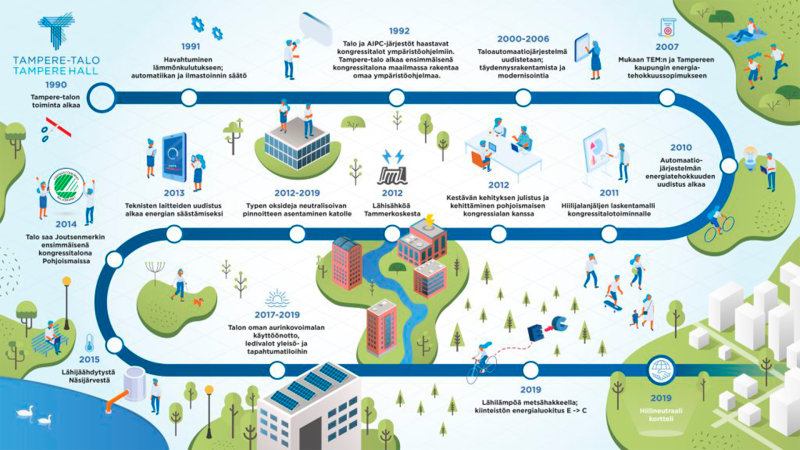
Carbon-neutral property
In 2019, the Tampere Hall became a carbon-neutral property, which together with the Courtyard by Marriott Tampere City Hotel forms a carbon-neutral block. The journey of environmental acts has already begun in 1991, and along the way we have e.g. switched to renewable energy (2012–2019), achieved the Nordic Swan Ecolabel (2014) and raised our energy class from E to C (2019). Over the years, the property has undergone several environmentally friendly and energy-efficient improvements.
We believe in long-term sustainability, so we will continue to work for our common environment.
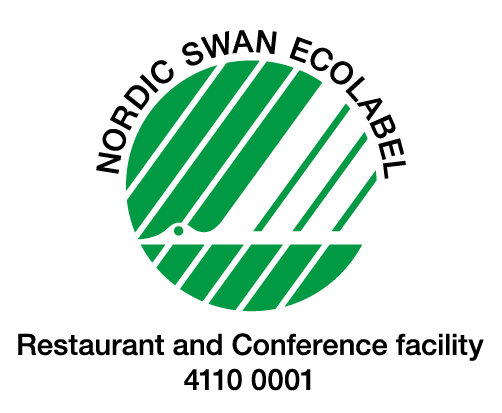
Nordic Swan Ecolabel
In June 2022, Tampere Hall was the first Nordic congress center to receive approval for the Nordic Swan Ecolabel according to the new criteria. For the first time, Tampere Hall was awarded the label back in 2014. As a Swan-labeled congress center, we must meet strict environmental requirements and invest in environmental work holistically in terms of energy, water, food, waste, chemicals and procurement. Obtaining and using the mark requires e.g. efficient use of water, serving sustainable food, the use of eco-labeled products and services, and the training and commitment of workers.
The aim of the Nordic Swan Ecolabel is to promote sustainable development, which is pursued step by step. This means that the criteria will be tightened about every 3–5 years. The criteria are revised in accordance with, among other things, new environmental information, technological developments and the market situation. Renewing the licence requires a critical review, concrete actions and guidelines for our own activities – how can we act even more environmentally friendly?
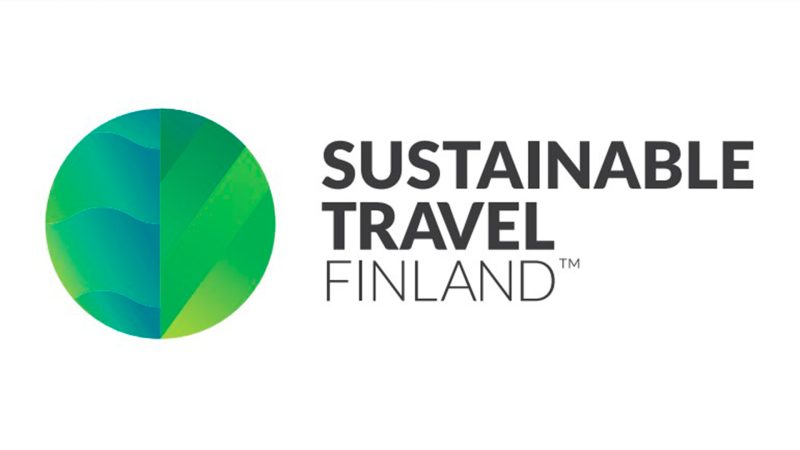
Sustainable Travel Finland
Tampere Hall was awarded the Sustainable Travel Finland label in April 2021. Sustainable Travel Finland is primarily a joint label and tool intended for international marketing of sustainable tourism. The companies that have received the mark meet the criteria created by Visit Finland, considering economic, ecological, social and cultural sustainability.
The goal of the brand is to promote sustainable tourism in Finland, to communicate more consistently about Finland as a country of sustainable tourism and to facilitate tourists’ choices when making travel decisions. It also aims to initiate and increase cooperation in accordance with sustainable development between municipalities and other public actors, regional tourism organizations and companies.
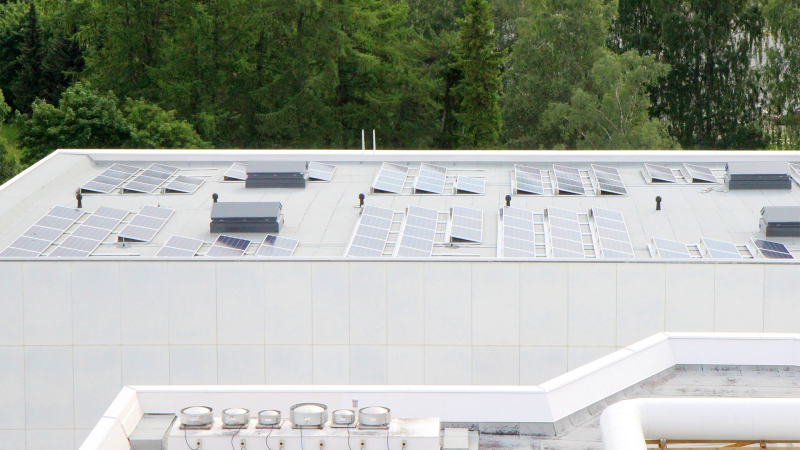
Solar power plant
On the roof of the Tampere Hall there are three solar power plants, which were completed in 2017, 2019 and 2021. Utilizing solar power is one of our most important solutions for responsible operations.
With the latest power plant, the roofs have a total of 514 photovoltaic panels. The combined emission reduction of all three power plants is about 18 tonnes of CO2 / year. The production of our own solar panels corresponds to our consumption for about one month, and we get the rest of the electricity as renewable local energy from Tammerkoski rapids. Solar electricity also extends the growing time in the greenhouse of the house’s rooftop garden.
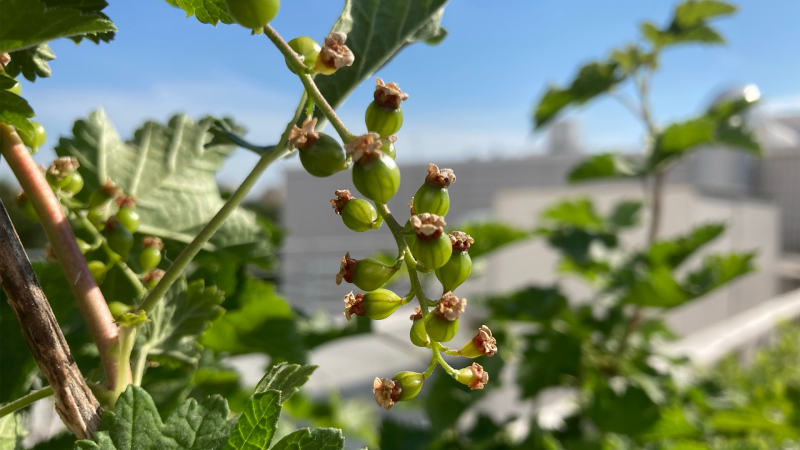
Rooftop garden
In 2016, a large number of gardening boxes and a 20m2 greenhouse were placed on the roof of the Tampere Hall. The rooftop garden produces a large harvest for the use of our restaurants: vegetables, berries and other useful plants. The greenhouse implemented with Hämeen Lasitoimi is composed of insulating glass elements, the advanced structure of which promotes the well-being of plants in scorching place, and on the other hand keeps the cool air away. The greenhouse also has an air source heat pump powered by solar energy, which allows the growing season to continue from the beginning of April until October.
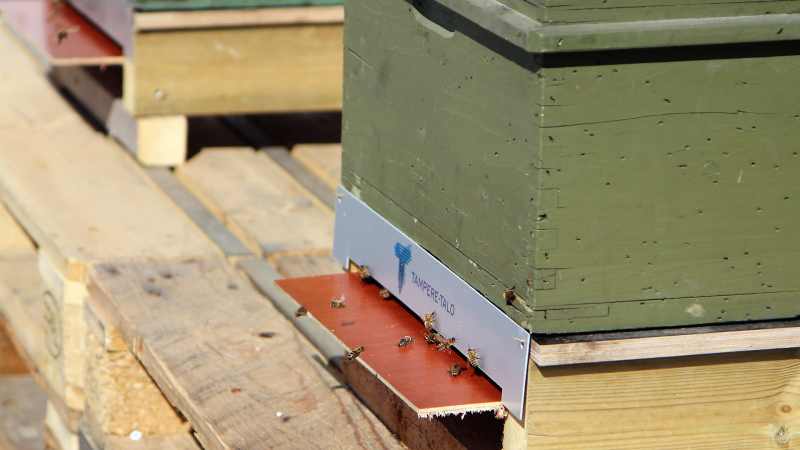
Bee colony
The roof of the Tampere Hall is inhabited by four bee colonies. The first moved to the roof in May 2018, and were joined by the other two the very next year. There are 20,000 bees in every community, and they will grow into communities of up to 200,000 bees during the summer!
The bees collect nectar within a radius of about two to three kilometers from Tampere Hall. One nest usually produces about 30 kilos of honey, and very good honey is obtained from limes in the Kalevankangas area. Beekeeper Teemu Aittamaa from Korpikuusikko Honey takes care of the beehives.
One beehive pollinates a couple million flowers a day. That’s a big ecological impact!
Teemu Aittamaa, Korpikuusikko Honey
Our partners

Think Sustainably is your guide to more sustainable choices. Companies participating in Think Sustainably service meet the industry-specific sustainability criteria and are committed to promoting sustainable options to make your visit and everyday life in Tampere a greener one.
Tampere Hall and other companies and operators participating are marked with a red, heart-shaped label.
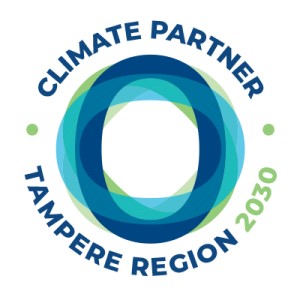
As a partner of the Sustainable Tampere 2030 program, Tampere Hall is committed to promoting the region’s common goal of being carbon neutral by 2030.
As a climate partner, we implement at least one emission reduction measure every year, and we constantly develop our operations according to the principles of sustainable development.
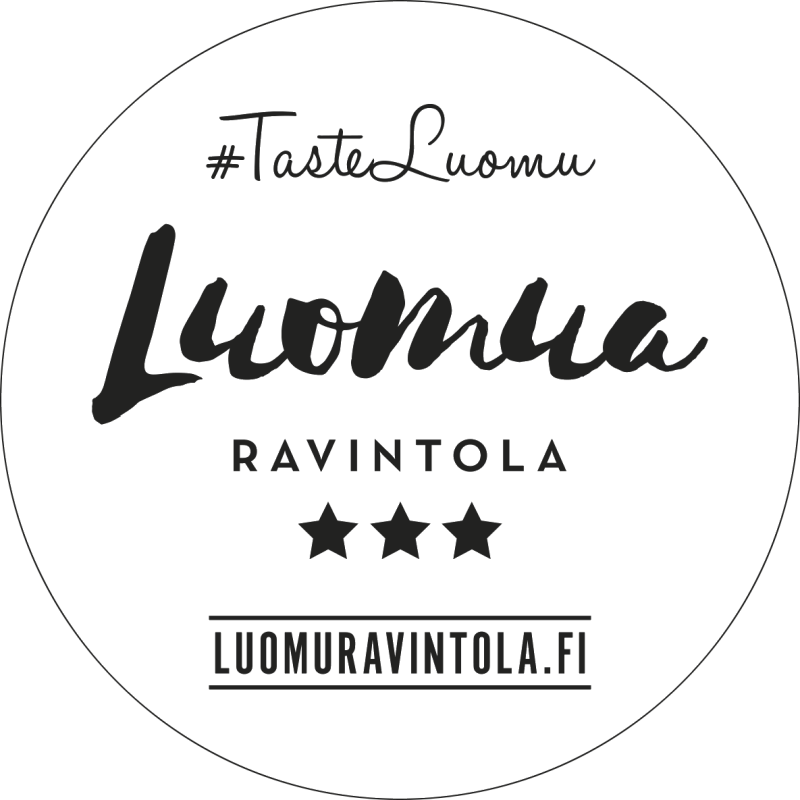
Tampere Hall is on step five of the Steps to Organic program. In our kitchen, at least 20 significant raw materials are used permanently as organic products. In addition, we use other organic products whenever possible.
Organic means that the food has been produced in a high-quality and controlled way, taking into account the environment, the well-being of animals and people.

Energy efficiency agreements are an essential part of Finland’s energy and climate strategy and a primary means to promote efficient energy use in the country.
Tampere-talo Ltd., as a company owned by the City of Tampere, is included in the energy efficiency agreement concluded with the Ministry of Economic Affairs and Employment in 2007. The agreement aims primarily at improving energy efficiency, but it also includes goals and measures related to promoting the use of renewable energy.
Some more good deeds
Probiotic Cleaner
We have a new Swan-labeled probiotic cleaner, Kiilto Pro Universal Probio, at our disposal. Probiotic cleaning differs from traditional cleaners in that they not only clean surfaces but also leave behind beneficial microbes. Probiotic microbes remain on surfaces after cleaning and continue to remove dirt and odors even between cleaning sessions. Through natural enzymatic processes, probiotics break down dirt into smaller particles, making cleaning easier in the future.
Daily cleaning
Our partner SOL Services is responsible for the cleanliness of the Tampere Hall. The company has an ISO 14000 environmental system, the latest environmentally friendly cleaning methods and equipment, and ecolabeled products. SOL is committed to the Ministry of the Environment’s Sustainability Commitment 2050 project. A lot of recycled materials are used for cleaning, such as carrying bags and mop bags made from recycled plastic bottles.
Restaurant heat recovery system
The traditional kitchen loses a huge amount of energy due to the problem of grease in the ventilation ducts. With the help of the ozone system at the Tampere Hall, it is possible to use a rotating heat recovery system with the highest heat recovery percentages.
By ozonating the restaurant’s grease ducts, the exhaust air grease is broken down, the risk of fire is eliminated and the need for sooting is reduced. This also allows heat to be recovered after the air in the grease duct has been cleaned to suit the heat exchanger. The system significantly reduces the amount of odors that escape.
Air-cleaning bitumen roof covering
The roof of the Tampere Hall has more than 7,000 m2 of air-purifying titanium dioxide coverings. The sun activates the cover, which after various stages converts the nitrogen oxides from traffic into nitrate. The nitrate content of the water leaching from the roof with rainwater is lower than that of mineral water. The coating compensates for more than 730,000 kilometers of car driving per year.
According to studies by Tampere Hall, nitrogen oxide emissions from annual employee travel can be compensated with a coating.
Electricity, cooling and heat from the close by
In addition to the electricity generated by its own solar power plants, Tampere Hall uses only renewable energy produced by Tammerkoski rapids.
Since 2015, the Tampere Hall property has been cooled with lake water obtained directly from the depths of Lake Näsijärvi.
Since 2019, the property has been warmed by certified forest chips.
Recycling
We sort all the waste generated in the house. Half of them go to recycling and half to recovery. We pay attention to the generation of waste already at the stage when we procure food and products.
Our energy waste goes to an incineration plant, where the waste generates new heat and electricity for Pirkanmaa region. Our biowaste is produced into soil.
Water saving
Our customers can fill their drinking water bottles with the water points of the house, marked with the icon can be found in the toilets of the house. There are vending machines in the public areas and lobbies with ecological, 100% biodegradable drinking cups.
Our house has water-saving technical equipment, waterless urinals, water flow restricting valves and electronic faucets.
Using tissue paper
Sustainability is part of everything we do, including tissue paper. We use Metsä Tissue’s products, where all of the wood used as a raw material is of certified or controlled origin and comes from responsibly produced renewable forests. The products are manufactured in accordance with the ISO 9001, ISO 14001 and ISO 22000 quality and environmental systems. The products also have the Nordic Swan Ecolabel.
Reducing food waste
About a third of all environmental pollution caused by consumption comes from food. The food waste generated by Tampere Hall’s restaurant operations is weighed by Biovaaka Pro system, and the reports provided by the system are reviewed regularly. Reducing food waste is visible throughout the chain and starts with how we buy food and raw materials. Biowaste is the most expensive waste, so reducing waste is also financially responsible.
Ozone water
We discontinued the use of ozone water for cleaning at the end of 2023. In our daily cleaning routine, we will now only use environmentally certified products.
The ozonated water used e.g. to clean the kitchen surfaces, is produced by an ozonator, which is connected to cold tap water. The water first passes into an impurity-removing capsule, where, among other things, lime and magnesium are removed from the water. The water then flows into the device itself, which at the same time sucks in air from the room. Inside the machine, there is an electric field where a small lightning bolt is formed, which causes ozone to form. Ozone is then mixed with water as a gas.
The disinfection efficiency of ozone is based on its very fast oxidizing ability, which burns microbes scattered. The disinfection effect of the ozone water is maintained for four hours, the washing effect for eight hours – after which the ozone water becomes water again.
Ozonated water significantly reduces the use of chemical cleaners.
